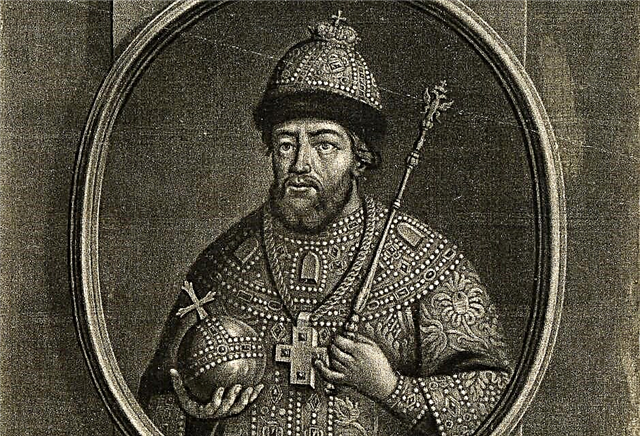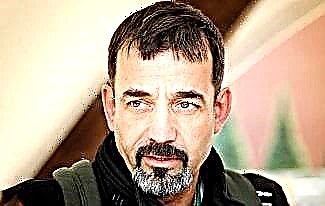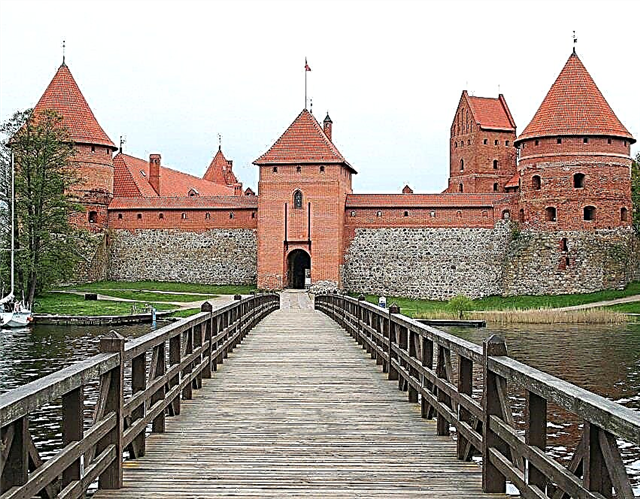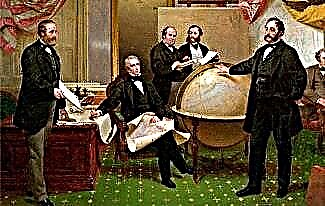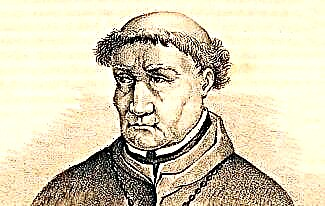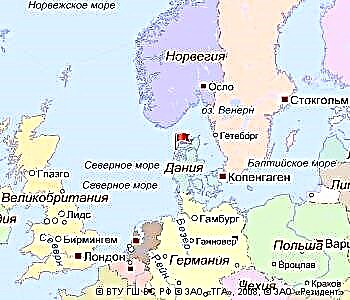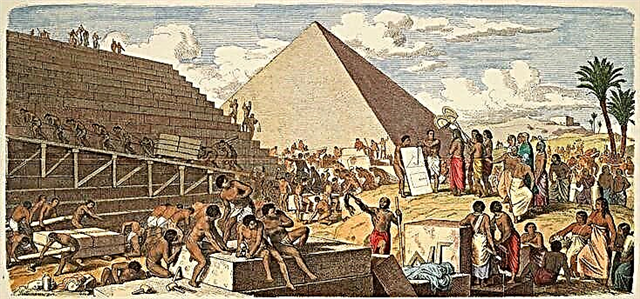Anton Semenovich Makarenko (1888-1939) - world famous educator, teacher, prose writer and playwright. According to UNESCO, he is one of the four educators (along with Dewey, Kerschensteiner and Montessori) who determined the way of pedagogical thinking in the 20th century.
He devoted most of his life to re-education of difficult teenagers, who then became law-abiding citizens who achieved great heights in life.

There are many interesting facts in the biography of Makarenko, which we will talk about in this article.
So, before you is a short biography of Anton Makarenko.
Biography Makarenko
Anton Makarenko was born on March 1 (13), 1888 in the city of Belopole. He grew up and was brought up in the family of an employee of the railway station Semyon Grigorievich and his wife Tatyana Mikhailovna.
Later, the parents of the future teacher had a boy and a girl who died in infancy.
Childhood and youth
As a child, Anton was not in good health. For this reason, he rarely played with the guys in the yard, spending a long time with books.

Although the head of the family was a simple worker, he liked to read, having a fairly large library. Soon Anton developed myopia, due to which he was forced to wear glasses.
Makarenko was often bullied by his peers, calling him “bespectacled”. At the age of 7, he went to primary school, where he showed good ability in all subjects.
When Anton was 13 years old, he and his parents moved to the city of Kryukov. There he continued his studies at a local four-year school, and then completed a one-year pedagogical course.
As a result, Makarenko was able to teach law to schoolchildren.
Pedagogy
After several years of teaching, Anton Semenovich entered the Poltava Teachers' University. He received the highest marks in all disciplines, as a result of which he graduated from the university with honors.
At that time, biographies Makarenko began to write his first works. He sent his first story "A Stupid Day" to Maxim Gorky, wanting to know his opinion about his work.

Later, Gorky answered Anton. In his letter, he severely criticized his story. For this reason, Makarenko gave up writing for 13 years.
It is worth noting that Anton Semenovich will maintain friendly relations with Gorky throughout his life.
Makarenko began to develop his famous pedagogical system in a labor colony for juvenile criminals located in the village of Kovalevka near Poltava. He tried to find the most effective way to educate teenagers.
An interesting fact is that Anton Makarenko studied the works of many teachers, but none of them pleased him. In all the books, it was proposed to re-educate children in a harsh manner, which did not allow finding contact between the teacher and the wards.
Taking juvenile delinquents under his wing, Makarenko divided them into groups, to whom he offered to equip their life with their own hands. When deciding any important issues, he always consulted with the guys, letting them know that their opinion is very important to him.
At first, the pupils often behaved in a boorish way, but later they began to show more and more respect for Anton Makarenko. Over time, older children voluntarily took the initiative into their own hands, re-educating younger children.
Thus, Makarenko was able to create an effective system in which the once daring pupils became "normal people" and sought to convey their ideas to the younger generation.
Anton Makarenko encouraged children to strive to get an education in order to have a decent profession in the future. He also paid great attention to cultural activities. In the colony, performances were often staged, where the actors were all the same pupils.

Outstanding achievements in the educational and pedagogical field made the man one of the most famous figures in world culture and pedagogy.
Later Makarenko was sent to head another colony, located near Kharkov. The authorities wanted to test if his system was a successful fluke or if it actually worked.
In the new place, Anton Semenovich quickly established the already proven procedures. It is curious that he took with him several street children from the old colony who helped him work.
Under the leadership of Makarenko, difficult teenagers began to lead a decent lifestyle, getting rid of bad habits and thieves' skills. The children sowed the fields and then reaped a rich harvest, and also produced various products.
Moreover, street children have learned how to make FED cameras. Thus, adolescents could feed themselves on their own, almost without needing funding from the state.

At that time, Anton Makarenko's biographies wrote 3 works: "March of 30", "FD-1" and the legendary "Pedagogical Poem". The same Gorky prompted him to return to writing.
After that, Makarenko was transferred to Kiev to the post of assistant head of the department of labor colonies. In 1934 he was admitted to the Union of Soviet Writers. This was largely due to the "Pedagogical Poem", in which he described his education system in simple words, and also brought many interesting facts from his biography.
Soon a denunciation was written against Anton Semenovich. He was accused of criticizing Joseph Stalin. Warned by former colleagues, he managed to move to Moscow, where he continued to write books.
Together with his wife, Makarenko publishes a "Book for Parents", in which he presents his view of raising children. It said that every child needed a team, which in turn helped him to adapt in society.
Later, based on the writer's works, such films as "Pedagogical Poem", "Flags on the Towers" and "Big and Small" will be shot.
Personal life
Anton's first lover was a girl named Elizaveta Grigorovich. At the time of the meeting with Makarenko, Elizaveta was married to a clergyman, who actually introduced them.
At the age of 20, the guy was in a terrible relationship with his peers, as a result of which he wanted to commit suicide. To protect the young man from such an act, the priest had more than one conversation with him, involving his wife Elizabeth in the conversations.
Soon, young people realized that they were in love. When Anton's father found out about this, he kicked him out of the house. Nevertheless, Makarenko did not want to leave his beloved.
Later, Anton Semyonovich, together with Elizabeth, will work in the Gorky colony. Their relationship lasted for 20 years and ended by the decision of Makarenko.

The teacher entered into an official marriage only at the age of 47. With his future wife, Galina Stakhievna, he met at work. The woman worked as an inspector of the People's Commissariat for Supervision and once came to the colony for an inspection.
From a previous marriage, Galina had a son, Lev, whom Makarenko adopted and raised as his own. He also had an adopted daughter, Olympias, left over from his brother Vitaly.
This was due to the fact that the White Guard Vitaly Makarenko had to leave Russia in his youth. He emigrated to France, leaving behind his pregnant wife.
Death
Anton Semenovich Makarenko died on April 1, 1939 at the age of 51. He passed away under very strange circumstances.
The man died suddenly under circumstances that are still unclear. According to the official version, he died of a heart attack that happened to him in a train car.
However, there were a lot of rumors that Makarenko should have been arrested, so his heart could not withstand such stress.
An autopsy revealed that the teacher's heart had unusual damage that results from poisoning. However, the confirmation of the poisoning could not be proved.
Makarenko Photos












